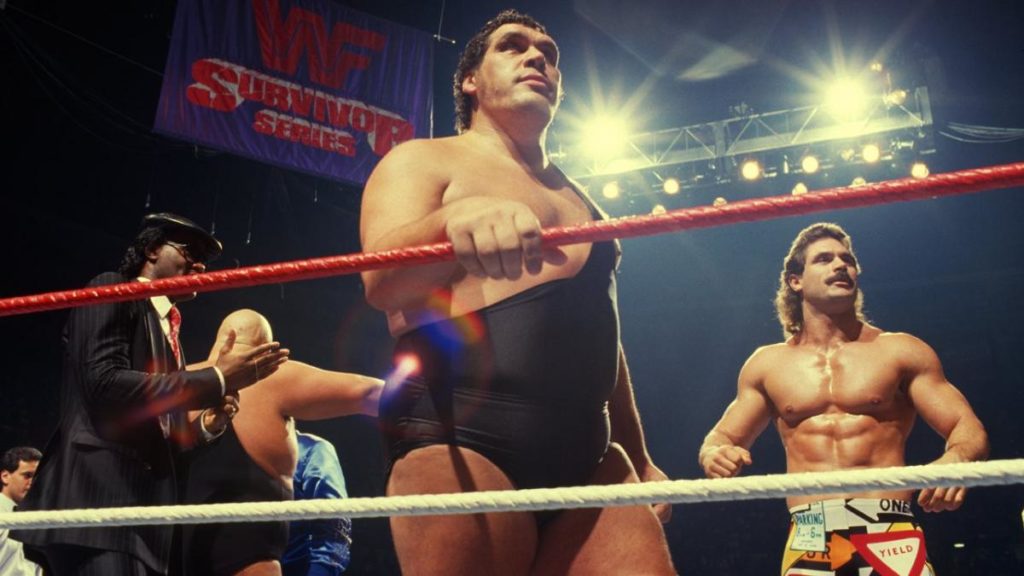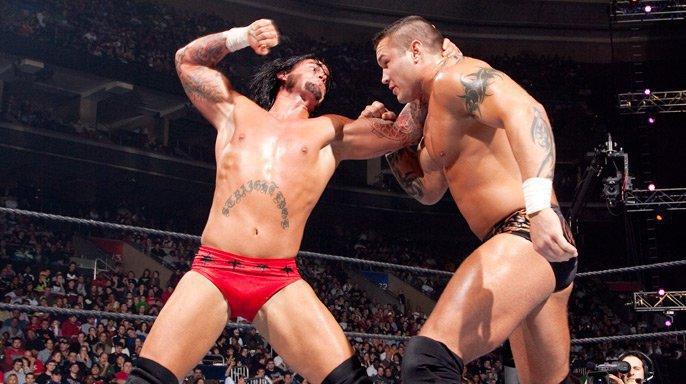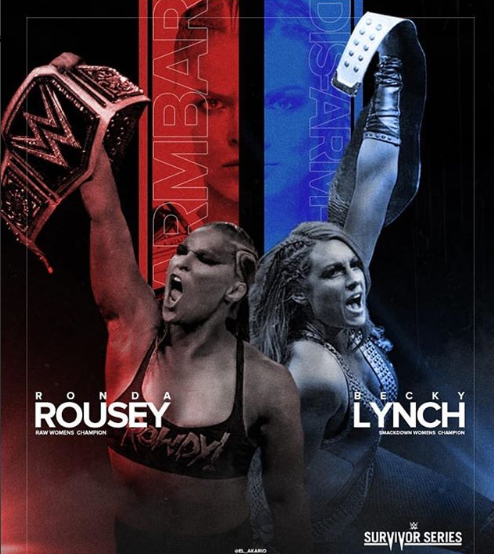Feuds, Debuts, and Screwjobs: A History of Survivor Series

It’s 1987, and WWE (then WWF) was taking off in a way it hadn’t yet. Wrestling—typically defined by local shows and territories—had yet to fully shift into the product it looks like today. But things were certainly changing at a rapid clip, and 1987 was arguably the defining year of wrestling’s ’80s boom. Shows were getting bigger and arenas were selling out. The culmination of that momentum was WrestleMania III, held at the Pontiac Silverdome in Pontiac, Michigan on March 29, 1987. It was the pay-per-view event that signaled a new era for WWF and one that changed the course of wrestling forever.
WrestleMania III had its fair share of notable matches, but none more historically significant than the main event, where Hulk Hogan successfully defended his World Heavyweight Championship against Andre The Giant. The fervor surrounding that event set WWF on an upward trajectory that’s simply part of history now, but at the time, anything could have happened. WWF couldn’t just rely on WrestleMania to be its defining show. So, it began branching out. Looking to capitalize not only on the feud between Hogan and Andre but also on the increased interest in PPV events, WWF created Survivor Series, holding the first one later that year in Richfield Township, Ohio.
Once again Andre and Hogan were the centers of attention, but this time around, the format was different. Survivor Series was unique in that it pitted teams of wrestlers against one another in an elimination-style match where the winner was declared the “Sole Survivor.” Hogan, who had Bam Bam Bigelow, Paul Orndorff, Don Muraco, and Ken Patera alongside him in 1987, didn’t fare as well this time around, losing to Andre’s team of Rick Rude, King Kong Bundy, One Man Gang, and Butch Reed, with the Giant being crowned the Sole Survivor. The matches that night set the stage for every other Survivor Series to come. While WWE would eventually abandon the idea of having the PPV consist solely of team-based elimination matches, like the 1987 card, that format has never truly gone away.
Over the years, the traditional Survivor Series elimination match has been used to settled feuds and ignite news ones; so while the Royal Rumble may be marketed as the beginning of the “Road to WrestleMania,” Survivor Series often sets the stage, with moments that kickstart defining title chases or grudges that last well into the following year. Consider 1993, when Owen Hart was the only member of the Hart Family’s team eliminated during their Survivor Series match. That kind of notoriety didn’t do anything to help the younger brother of Bret Hart overcome his inferiority complex, and that led to

While the traditional elimination matches provided the building blocks for the PPV, allowing for the current brand split era to pit RAW against SmackDown LIVE in a series of matches—including a Champion vs. Champion match between Ronda Rousey and Becky Lynch this year—the PPV has arguably been defined by singles matches. As WWE grew in popularity, and their storytelling expanded and changed shape, Survivor Series had to change shape too. Having a card with nothing but traditional elimination matches just wouldn’t cut it, so in the ‘90s, WWF changed course. Survivor Series would become one of the “Big Four” PPVs—along with WrestleMania, SummerSlam, and the Royal Rumble—signaling to fans it was an event that couldn’t be missed.
Helping to turn Survivor Series into a must-see PPV was a collection of era-defining moments in the ‘90s—too many to even mention. The most notorious, though, happened in 1997, when Vince McMahon famously screwed Bret Hart out of the WWF Championship during his match against Shawn Michaels: “The Montreal Screwjob” would enter the lexicon of wrestling fans everywhere and certainly set the stage for the villainous Mr. McMahon character, who went on to rule his ship with even tighter authority in the late ‘90s. Especially as he butted heads with “Stone Cold” Steve Austin. Add in Vince and Shane McMahon getting The Rock on their side as “The Corporate Champion” at the 1998 event, and you can see that Survivor Series in the late ’90s boasted some of company’s most memorable moments.
Of course, the current era has it’s own defining moments as well. 2014 not only saw Dolph Ziggler—who became the Sole Survivor and helped Team Cena defeat Triple H’s Team Authority—deliver one of the best elimination match performances of all time, it also featured the WWE debut of Sting. Just as Triple H was setting the stage for a victory for Team Authority, once again handing a win to his protege and former Shield member Seth Rollins, Sting’s music hit and the former WCW star would walk to the ring and
The truth is, there are a ton of moments over the years that you could highlight as game-changers—The Rock turning on John Cena in 2011 to set up their WrestleMania 28 main event; Goldberg beating Brock Lesnar in less than two minutes in 2016; 2002’s event that featured the debut of the Elimination Chamber and saw Shawn Michaels win the WWE Championship after returning from an injury that many predicted would end his career—but no moment may have shaped things to come more than The Shield making their debut in 2012.
Few superstars have shaped the last few years of WWE more meaningfully than Seth Rollins, Dean Ambrose, and Roman Reigns. They’ve made their mark time in and time out, and it all started at Survivor Series when they infiltrated the WWE Championship match and laid waste to Ryback, which allowed CM Punk to get the win over John Cena and retain his WWE Championship. That was the first audiences had seen of the “Hounds of Justice,” but obviously, it wasn’t the last time they’d see them wreak havoc on the roster. Think about all the championships they’ve won, both as a tag team and as individuals. Think about the feuds they’ve been a part of, the WrestleManias and SummerSlams they’ve
All of this is to say that it’s impossible to pin down the legacy of Survivor Series. There’s no one moment, no single show, that defines the PPV and what it means to WWE. This year’s event will pit RAW against SmackDown LIVE once again. Champions will battle against champions: AJ Styles vs. Brock Lesnar; The Bar vs. The Authors of Pain; Ronda Rousey vs. Becky Lynch; Seth Rollins vs. Shinsuke Nakamura; Buddy Murphy vs. Mustafa Ali. And of course, two traditional elimination matches featuring stars like Daniel Bryan, Samoa Joe, Asuka, Carmella, and Braun Strowman. There’s no telling how the night will unfold, but if the history above is any indication, we’re in for a night of twists and turns, and more than a few heated battles that will certainly play out well into WrestleMania season.

You can watch Survivor Series this Sunday, November 18th on the WWE Network